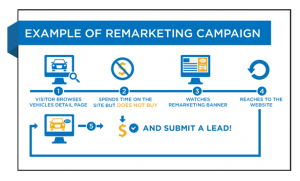Posted:
Wednesday, April 30, 2014
Three Reason Why You Should Also Advertise On Bing
Google runs a monopoly on the search engine marketing industry. That’s evident by the fact that over here at Integrated PPC nearly 98 percent of our clients ad spend is spent on Google. Yup, a paltry 2 percent of the budget that is managed here is spent on Bingads. Apparently, Bing’s marketing blitz of “Don’t get scroogled”, a few years back, fell on deaf ears.
 With 70 percent of all search traffic going through them, Google is definitely the alpha dog in the search engine marketing industry. Any business that does PPC advertising needs to be advertising on Google — such a large portion of internet traffic is too significant to ignore. Accounting for nearly 20 percent of search traffic, Bing comes in at a very distant second. Twenty percent is still quite significant and could account for millions of potential customers, so Bing shouldn’t be ignored either. Here are three reasons why you should also consider advertising on Bingads, even if you’re already advertising on Google.
With 70 percent of all search traffic going through them, Google is definitely the alpha dog in the search engine marketing industry. Any business that does PPC advertising needs to be advertising on Google — such a large portion of internet traffic is too significant to ignore. Accounting for nearly 20 percent of search traffic, Bing comes in at a very distant second. Twenty percent is still quite significant and could account for millions of potential customers, so Bing shouldn’t be ignored either. Here are three reasons why you should also consider advertising on Bingads, even if you’re already advertising on Google.
Lower CPC On Bing
The cost per click to advertise on Bing is significantly cheaper than Google. The cheaper CPCs can be advantageous for those advertising in expensive niches such as the auto loan sector, where each $12 click can quickly deplete your daily budget in Google. The downside to Bing is that fewer people will see your ads. However, you may end up with a better ROI if those who do click on your ads are converting.
Bing Has More Top Page Sponsored Ads
Studies have shown that more people pay attention to the ads at the top of the page than those that appear on the sidebar. The advantage Bing has over Google is that they display more ads on the top page than Google. If you conduct the same keyword search on Google and Bing, you’ll find that at least one more ad appears above Bing organic search results than Google. This means that a fourth position placement on Bing is not only cheaper, but it also has better ad placement on the top of the organic search results.
Easy Import To Bingads
For someone looking to advertise on both Bing and Google, Bingads makes it very effortless to import your Adwords campaigns to Bingads with an import to Adwords function. With just a couple clicks you could be advertising in both advertising platforms and maximizing your search engine traffic — no tedious rebuilding of your campaign involved here.


 Millenials, those born after 1982, are often described as tech-savvy, educated, self-involved, socially connected (a product of coming to age during the social networking era), and impatient. At 80 million strong they make up the largest generation in U.S. History since the Baby Boomers. According to industry experts they carry as much as $170 billions annually in spending power. Car dealerships and automotive brands that can develop brand loyalty early are well positioned to reap a hefty portion of the millenial’s spending pie.
Millenials, those born after 1982, are often described as tech-savvy, educated, self-involved, socially connected (a product of coming to age during the social networking era), and impatient. At 80 million strong they make up the largest generation in U.S. History since the Baby Boomers. According to industry experts they carry as much as $170 billions annually in spending power. Car dealerships and automotive brands that can develop brand loyalty early are well positioned to reap a hefty portion of the millenial’s spending pie.